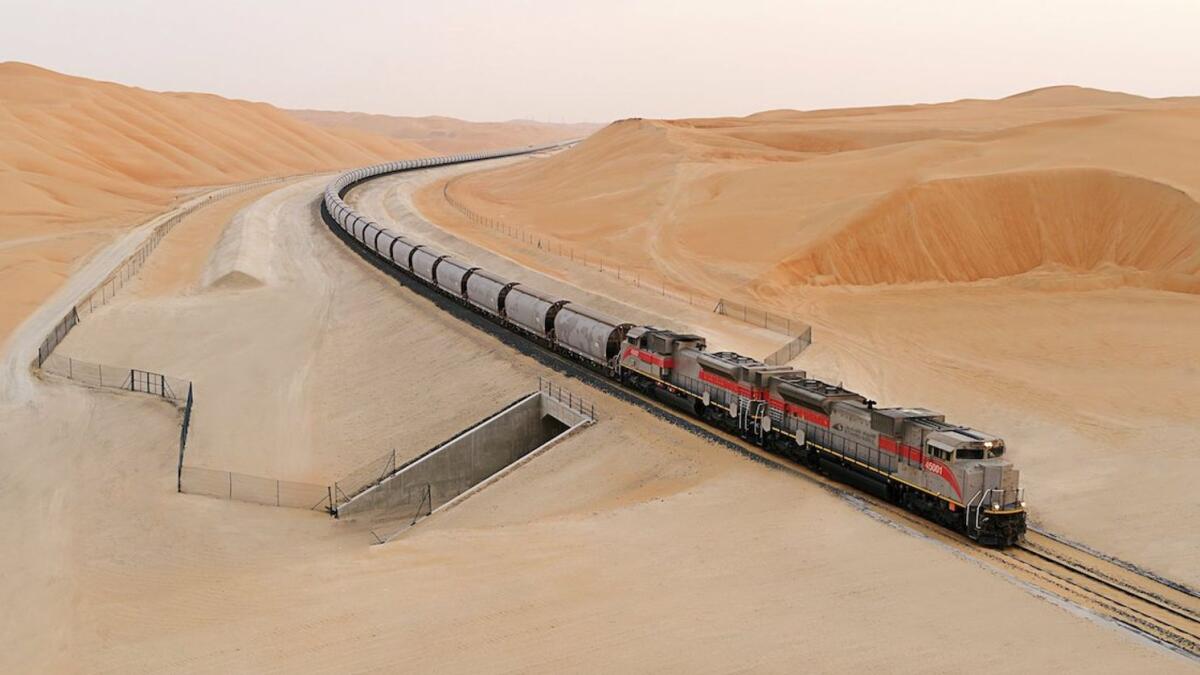With the completion of work on Package A of Stage Two, the Etihad Rail project, which is constructing the UAE’s national railway network, has made significant progress.
The most recent phase, which covers 139 kilometers, connects to the previous one at Al Ghuwaifat on the Saudi Arabian border.
The 1,200-kilometer rail project, which was initially expected to cost Dh40 billion, is now closer to being finished on schedule, according to the company, which noted this important step.
The rail project, which was created to link the commercial and industrial centers of the UAE, will be an essential component of the GCC railway network, linking the seven emirates to the five neighboring Gulf countries.
The Board of Directors of the company and Sheikh Theyab bin Mohamed bin Zayed Al Nahyan, the head of Etihad Rail and the Abu Dhabi Crown Prince’s Court, met virtually to discuss the development of the building projects.
Despite the difficulties they encountered as a result of the coronavirus pandemic, Sheikh Theyab praised the Etihad Rail team for their accomplishment.
The rail project’s first phase, which started in 2009, was completed and put into use in 2016. Each day, two trains capable of transporting up to 22,000 tons of sulphur, run across the country. Each can haul up to 110 wagons on any one journey.
In order to move granulated sulfur from gas fields in Shah and Habshan to an export location in Ruwais, two tracks totaling 264 kilometers have been in use since 2016.
More than 600 kilometers of new track will be built in stage two of the project, stretching from Ghuweifat on the Saudi Arabian border to Fujairah on the east coast.
One of the biggest infrastructure projects in the UAE, the strategic project is one that Sheikh Theyab said Etihad Rail would continue to work on realizing.
In line with the UAE Centennial 2071, he said, “Etihad Rail will connect key areas in the seven Emirates via a track extending over 1,200km to enhance the UAE’s social and economic development, as well as its global positioning.
This year, Etihad Rail was successful in reserving 40% of the network’s annual transport capacity, which will eventually reach 60 million tones of cargo every year after Stage Two is finished. This was accomplished thanks to the business contracts Etihad Rail has signed, including those with Western Banoona Group, Al Ghurair Iron & Steel (AGIS), and Stevin Rock, one of the largest quarrying companies in the world.
The UAE National Railway Network offers unparalleled services, as well as economic and logistical advantages, according to the company, which stated in a statement that it would “continue to establish further commercial partnerships and strategic agreements” to help other businesses.
The rail network stretches westwards to the borders of Qatar and Saudi Arabia. The eastern section connects Oman via Al Ain, while the western section connects Saudi Arabia via Ghweifat.
The line runs across the Emirates connecting Abu Dhabi, Sharjah and Dubai. It then extends to the northern emirates and Fujairah.
Stage Two extends from the Saudi Arabia border at Ghuweifat and connect Emirates through Abu Dhabi, Khalifa Port, Kizad, Dubai, Ras Al Khaimah, Jebel Ali Port, Sharjah and Fujairah on the east coast of UAE.
Visit us online for more information, or email us at [email protected]



